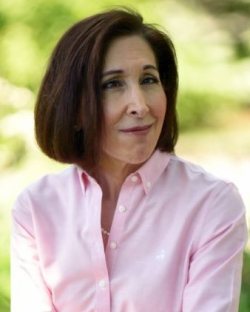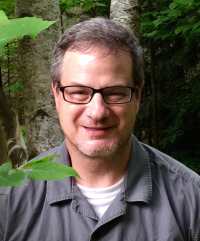Podcast: Growing Up With Autism
Much of what is written about autism concerns children, but children grow and each family establishes its own parameters of normal. By the time they are teenagers, routines are well-established and patterns can develop for how they will cope as adults on the autism spectrum.

Here is where an author like Liane Kupferberg Carter comes in. In her book, Ketchup is My Favorite Vegetable: A Family Grows Up with Autism, published by Jessica Kingsley, she talks about raising her son, Mickey, who is autistic and also has epilepsy, through the decades into early adulthood.
Listen to the entire interview here, or read some of the highlights below.
Interview Highlights
On parental frustration over cause.

Liane Kupferberg Carter
I think parents are desperate to figure this out. I know I certainly was in the beginning, and in the absence of any real answers, you just keep seeking causes. Was it that glass of wine you drank before you knew you were pregnant? Was it the antibiotic you took? If your child had GI issues, could that be the cause? Speaking as a parent, there is so much guilt about why a child is autistic.
On lack of credible information when her son was diagnosed
That really was one of the primary motivations in writing this book. When my son was diagnosed, autism adulthood felt like uncharted territory and I really needed a road map out there, and there just wasn’t one. He was at the front end of the autism wave back in the early ‘90s, so I certainly didn’t know anybody who had a child like that and what little I did know about autism came from movies like Rain Man. … When he was diagnosed, I was desperate to learn and there just wasn’t much information out there.
On the autistic community
If you’re autistic, you’re probably much less worried about causes and much more worried about services and accommodations because, for adults, there is such a lack of housing and employment and social opportunities. … I kind of think it’s similar to what we see with the deaf community. Autistic self-advocates feel that searching for a cure is demeaning and diminishing and futile. They see autism as an inextricable part of their being. And if you want to get rid of the autism, it’s like saying you want to get rid of them.
You can also subscribe to all our IndieVoices podcast episodes on iTunes and Soundcloud.

Howard Lovy is executive editor at Foreword Reviews. You can follow him on Twitter @Howard_Lovy
Howard Lovy
